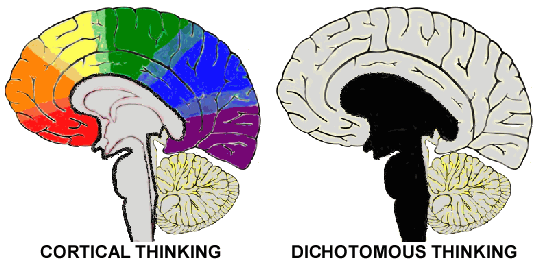The economy and social policies are certainly important, but when choosing a president, the two areas that the president shapes almost exclusively by him or herself is the Supreme Court and foreign policy. In no aspect of government is small-mindedness more dangerous than when it comes to foreign policy. In no area is there more of a tendency to take complex situations and reduce them to simple dichotomies.
From the transcript of Governor Romney’s 10/08/12 speech: “[The] struggle that is now shaking the entire Middle East to its foundation … is a struggle between liberty and tyranny, justice and oppression, hope and despair.” Good vs evil. Do people really get up in the morning and root for tyranny, oppression and despair. Are these causes that people rally around? To me, of course, it is a struggle between the goals of most people vs mental laziness and small mindedness. Tyranny and oppression flourish when there is a lack of will to ask the hard questions. What is the nature of our problems and how do we address them? Tyranny and oppression flourish most among people who can not get past the us vs them mentality.
“There is a longing for American leadership in the Middle East” “I believe that if America does not lead, others will—others who do not share our interests and our values—and the world will grow darker, for our friends and for us.” If they are not with us they are against us. We need to help our friends (the good guys) and defeat our enemies (the bad guys). I suggest that the problem is not the number of good people vs the number of bad people. The enemy (or problem) is the small-mindedness. The real “value” he is talking about is the belief that all people yearn for a similar set of common goals (peace, justice freedom prosperity, etc). The greatest barrier (that humans have any control over) to achieving these goals is small mindedness, dichotomous thinking.
“[It] is the responsibility of our President to use America’s great power to shape history—not to lead from behind, leaving our destiny at the mercy of events.” “[T]ens of thousands of Libyans, most of them young people, held a massive protest in Benghazi against the very extremists who murdered our people. They waved signs that read, ‘The Ambassador was Libya’s friend’ and ‘Libya is sorry.’ They chanted ‘No to militias.’” This in a country where the US lead from behind. Do we still see such pro-America demonstrations in Iraq or Afghanistan, where we sacrificed so many lives?
I agree that America should take a leadership role in the world. It should be an intellectual leadership. We should be promoting evolution and intellectual development. There will always be small-minded people who want to subjugate others. The goal is not to try to kill them all. The goal is to make their task harder by promoting goal-oriented thinking infavor of dichotomous thinking. An America that acts as if it can use its military might to “shape history” i.e. control rather than influence the world only increases dichotomous thinking and makes the task of the small-minded easier.
